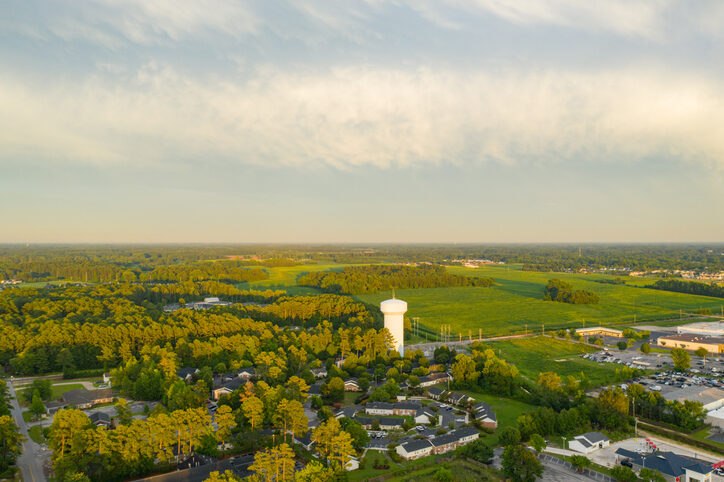
Community Leaders Across the Country: We Need to Reform Pole Access Rules Now
Local community leaders of all political stripes across the country are paying attention to the critical role that pole access plays in bridging our nation’s digital divide:
Loris Caplis, Montana | Billings Gazette: Utility pole regs could hamper broadband initiative
“Broadband expansion in Montana will be nearly impossible without access to utility poles. Internet service providers can quickly deploy broadband by attaching their technology to existing utility poles, but internet service providers usually don’t own these poles. The internet service providers must be granted use of the utility poles by the pole owners, who are most often local municipalities, electric companies, small utilities, or co-ops.”
Stacey Evans (D), Georgia State Representative| Saporta Report: Congress should act to remove barriers to broadband access
“In many communities, utility poles that are used for other services such as phone and electricity can be updated to include broadband. Internet service providers are ready to get started, but don’t typically own the poles in question. The providers say they are more than willing to cover costs associated with updating the poles, but the current process for obtaining permits and permission from the owners can seriously slow down implementation. We must work through the hard work to bring all players to the table and work out a solution that gets everyone online.”
Anthony Ditrio, Chairperson of the Connecticut Association of School Administrators (CASA) | CT Mirror: Expand access to high-speed internet
“As is the case with essentially all communications infrastructure, broadband expansion will be impossible without access to utility poles. Internet service providers can quickly deploy broadband by attaching their technology to poles, but providers usually don’t own these poles. Providers must be granted access to use the poles by the pole owners, who are often local municipalities, electric companies or small utilities and co-ops.”
Duste Dunn, Development Director at the Connecticut Citizen Action Group (CCAG) | Connecticut by the Numbers: Within Our Grasp – Connect Us All to Internet
“Utility poles act as the driving force for our country’s infrastructure. Similar to how a water company would need access to a region’s water pipes to bring running water to homes, internet providers will require access to utility poles to provide homes with broadband. Internet providers typically do not own the poles so for any broadband expansion to begin, the pole owners and those doing the expansion must come to an agreement that allows internet providers to access the poles and attach their technology.”
Michelle Gray (R), Arkansas State Representative | Arkansas Democrat: Closing the divide: Cut red tape for rural Internet
“While we continue to work at the local level to bridge the gap for rural Arkansans, lawmakers in Washington, D.C., can take action to eliminate the bureaucratic impediments and cut unnecessary red tape causing delays to high-speed Internet access. By setting up rules that make the process transparent and establishing regular timelines for permits and access to poles, they can expedite broadband infrastructure expansion.”
Consuelo Hernandez, Sunnyside School District School Board | Blog for Arizona: Unserved Arizonans and Americans Need Broadband Now and the Right Utility Poles to Deliver It
“Unserved Americans need legislative action to modernize the pole processes and expedite broadband deployment. Congress can remove bureaucratic barriers that cause delays and work to increase transparency through consistent timelines for permits and access to poles.”
Sean Hornbuckle (D), West Virginia State Delegate | Huntington Herald Dispatch: Broadband providers need access to utility poles
“We need to streamline the [pole access] process to make sure that the permitting process for accessing these utility poles is not held up by unnecessary red tape.”
Lester Jackson (D), Georgia State Senator | Albany Herald: In Georgia, we’ve got additional barriers to closing the digital divide
“The infrastructure bill’s much-needed investment in broadband expansion offers great promise in resolving this problem and evening the playing field for Georgia families, but significant barriers still exist in terms of deployment, primarily due to inefficient utility pole access rules.”
Michael Navarrete, Calumet City Alderman | Daily Herald: Utility poles key to closing digital divide
“We need faster, fairer standards for pole access so that unserved Americans can get online now. For the nearly 14 million Americans that live in areas with no access, there’s not a second to spare.”
Lutrica Prater, Small Business Owner | Sentinel Tribune: Internet access vital to success
“Because most internet service providers don’t own the rights to the utility poles they need access to, they have to pay the owners for the right to use them. The companies are ready and willing to pay for pole access, but pole owners often drag their feet during the permitting process.”
Jason Saine (R), North Carolina State Representative | Lincoln Herald: Expand Broadband Now
“With so much funding already allocated, it is imperative that we ensure that taxpayer dollars don’t go to waste, and that broadband is delivered to unserved communities in a speedy and efficient manner. Unfortunately, obsolete utility pole regulations stand in the way of achieving that goal.”
Steve Shurtleff (D), Former New Hampshire State Representative & Speaker of the House | Concord Monitor: New Hampshire’s digital divide
“Legislative action needs to be taken to modernize the pole processes and expedite broadband deployment. Congress can remove bureaucratic barriers that cause delays and work to increase transparency through consistent timelines for permits and access to poles.”
Verdaillia Turner, President of the Georgia Federation of Teachers in the Augusta Chronicle | The Augusta Chronicle: Georgia has work to do to get ready for investment in broadband
“Thousands of Georgia families are deprived of access to quality educational resources simply because they live in an area that does not have suitable high-speed internet access. Obsolete pole rules are the most glaring barrier standing in the way, but our elected leaders can take action to modernize these rules.”